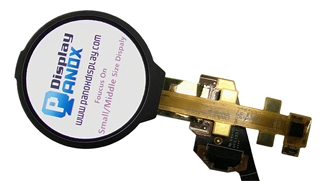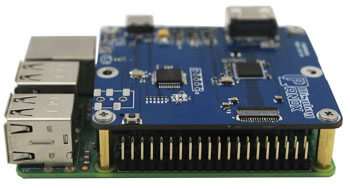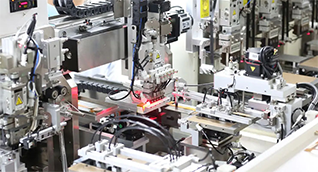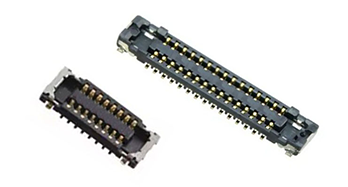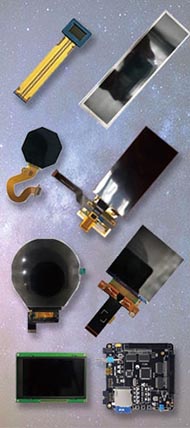IPS is a specific type of LCD panel technology known for exceptional color accuracy, wide viewing angles, and balanced performance. While all IPS monitors are LCDs, not all LCDs are IPS. Choosing the right panel type—IPS, VA, or TN—depends on your priorities, whether color precision, speed, contrast, or budget. Also check: Flexible OLED
What Is the Difference Between IPS and LCD Monitors?
Although "LCD" refers broadly to the liquid crystal display technology used in monitors, IPS (In-Plane Switching) is a particular subtype of LCD panel renowned for better colors and viewing angles. Other LCD types include TN (Twisted Nematic) and VA (Vertical Alignment). IPS panels deliver more consistent, vivid colors and wider viewing angles compared to traditional LCDs like TN or VA. In essence, IPS is a more advanced, higher-quality form of LCD technology.
How Do IPS, VA, and TN Panels Compare in Color Accuracy?
IPS panels offer exceptional color accuracy and consistency, making them the preferred choice for professional tasks like photo and video editing. VA panels provide decent color accuracy but cannot match IPS. TN panels have the poorest and least consistent color reproduction, which is less ideal for creative work but can be sufficient for basic use or gaming.
| Panel Type | Color Accuracy | Best For |
|---|---|---|
| IPS | Exceptional | Creative professionals, photo editing |
| VA | Decent | General media consumption, movies |
| TN | Poor | Competitive gaming, budget setups |
Why Do IPS Panels Have Better Viewing Angles?
IPS technology aligns liquid crystals horizontally, which minimizes color and contrast shifts when viewed from wide angles—up to 178°. This design ensures that colors remain vivid and accurate even from the side, making it great for group viewing or multi-monitor setups. By contrast, TN panels suffer severe color distortion off-axis, and VA panels fall somewhere in between.
How Does Response Time Affect IPS and Other LCD Panels?
Response time measures how quickly pixels update from one color to another. TN panels are the fastest, favored by competitive gamers for minimal motion blur. IPS panels have improved greatly in recent years and now offer fast enough response times for most users, including casual gamers. VA panels are generally slower, which can introduce ghosting with fast movements.
What Are the Contrast Ratio Differences Among IPS, VA, and TN Panels?
VA panels lead in contrast ratio, often between 3000:1 to 6000:1, producing true blacks and vibrant images. IPS panels have an average contrast ratio (~1000:1), which means blacks appear more grayish, especially in dark scenes. TN panels also have average contrast but generally worse black levels than VA. This makes VA excellent for immersive media like movies.
| Panel Type | Typical Contrast Ratio | Black Levels |
|---|---|---|
| VA | 3000:1 to 6000:1 | Deep, true blacks |
| IPS | ~1000:1 | Grayish blacks |
| TN | ~1000:1 | Poor, washed out black levels |
Which LCD Panel Is Best for Different User Needs?
-
Creative professionals: IPS panels are the clear winner due to superior color accuracy and consistency.
-
Competitive gamers: TN panels offer the fastest response times and lowest input lag.
-
General users and movie lovers: VA panels present a great cost-to-performance ratio with high contrast.
-
Immersive gamers: IPS panels strike a balance between speed and image quality, enhancing graphics-heavy games.
How Does Price Influence Your Choice Between IPS, VA, and TN Panels?
IPS monitors typically cost more due to their complex technology and higher image quality. VA panels are mid-priced, providing a balance of features and affordability. TN monitors are the most budget-friendly but sacrifice color fidelity and viewing angles. Panox Display offers a diverse range of display solutions allowing users to select optimal panels, balancing cost and performance.
Can Panox Display Help You Choose the Right Panel Technology?
Yes, Panox Display specializes in providing high-quality IPS, VA, and TN panels sourced from leading manufacturers like AUO, BOE, and LG. Their expert guidance ensures customers get the best display solutions tailored to their application, whether for creative design, gaming, or general use. Panox also supports customization and OEM services to meet specific project needs.
How Does Panox Display Support Industry Needs with LCD Technology?
Panox Display delivers reliable and versatile display options for diverse sectors including wearables, automotive, military, and VR. Their production capability of up to 50,000 panels daily, combined with advanced technologies like IPS-LCD, ensures top performance and availability. This makes Panox a trusted partner for cutting-edge display requirements worldwide.
What Are Experts at Panox Display Saying About IPS vs LCD Panels?
"In choosing a monitor panel, clarity and color fidelity remain paramount," notes a Panox Display expert. "IPS technology revolutionizes LCD displays with unmatched color accuracy and viewing angles, serving creative industries and demanding users alike. For customers seeking performance without compromise, Panox Display’s integration of IPS panels ensures both quality and value."
Summary: What Should You Consider When Choosing Between IPS and Other LCD Panels?
Choosing between IPS, VA, and TN panels depends on your priorities:
-
Opt for IPS if color accuracy, wide viewing angles, and professional quality are critical.
-
Choose VA for excellent contrast and deep blacks, ideal for media consumption.
-
Pick TN for fastest responsiveness and budget-friendly options for competitive gaming.
Panox Display offers a reliable, comprehensive portfolio of display technologies that empower users to make the best choice tailored to their needs and budget.
FAQs About IPS vs LCD Monitors
Q1: Are all IPS monitors LCDs?
Yes, IPS is a type of LCD panel technology offering superior color and viewing angles.
Q2: Can IPS panels be used for gaming?
Absolutely—modern IPS panels have fast response times suitable for immersive and casual gaming.
Q3: Why are IPS monitors more expensive?
They require more complex technology to deliver higher color accuracy and better viewing angles.
Q4: Is VA better than IPS for watching movies?
VA panels have higher contrast ratios, making them better for deep blacks in films, but IPS offers better colors.
Q5: Does Panox Display customize LCD panels?
Yes, Panox Display provides OEM and custom display solutions to meet various application requirements worldwide.











